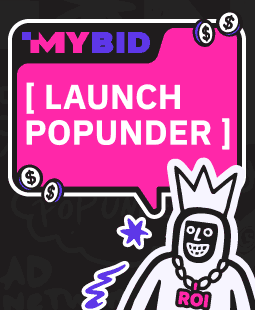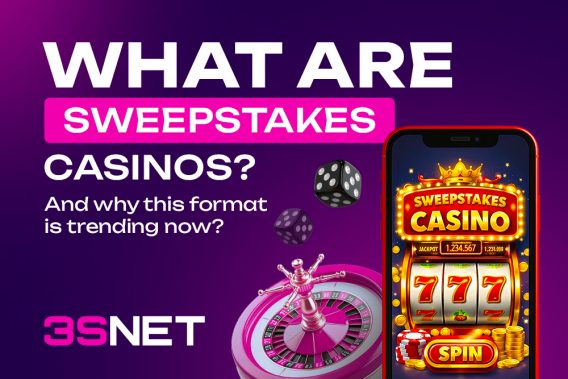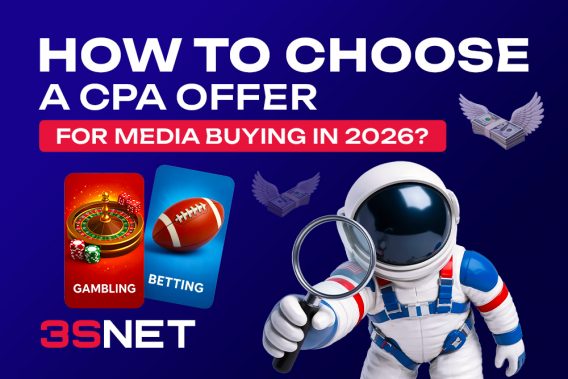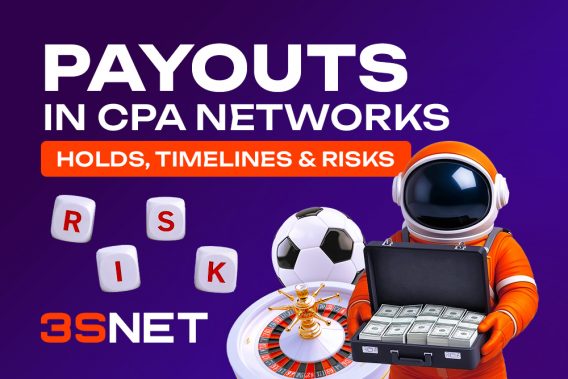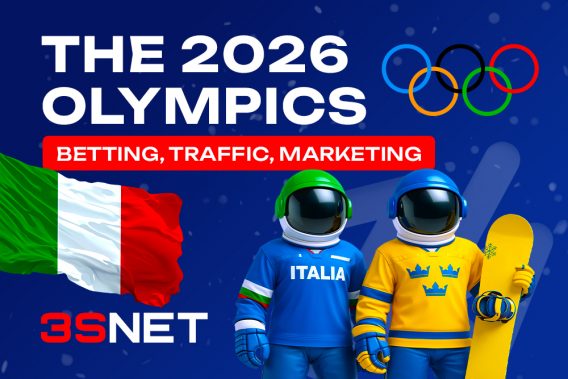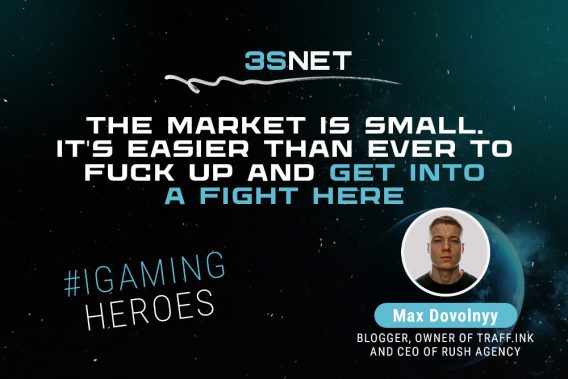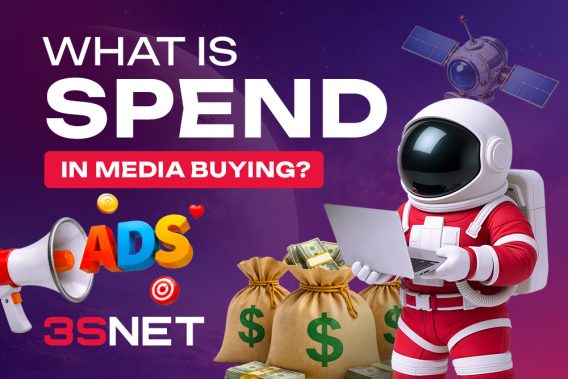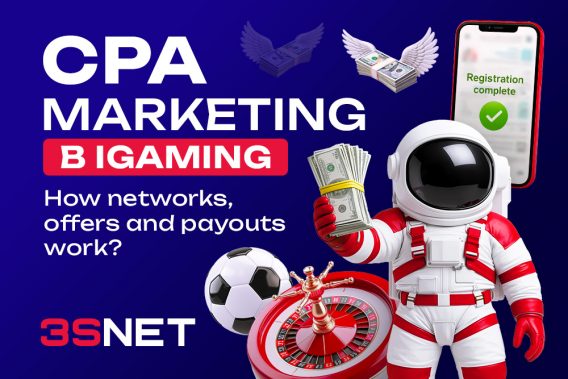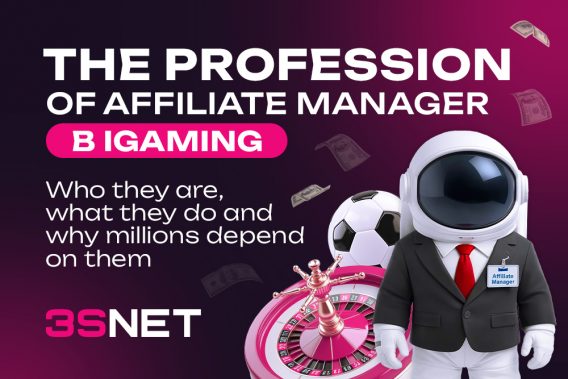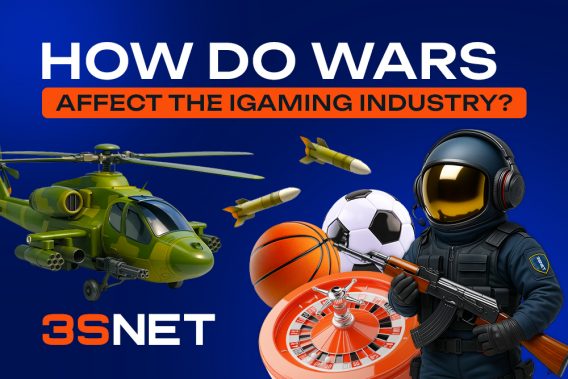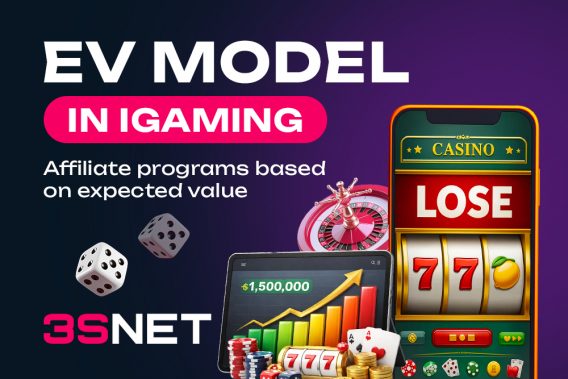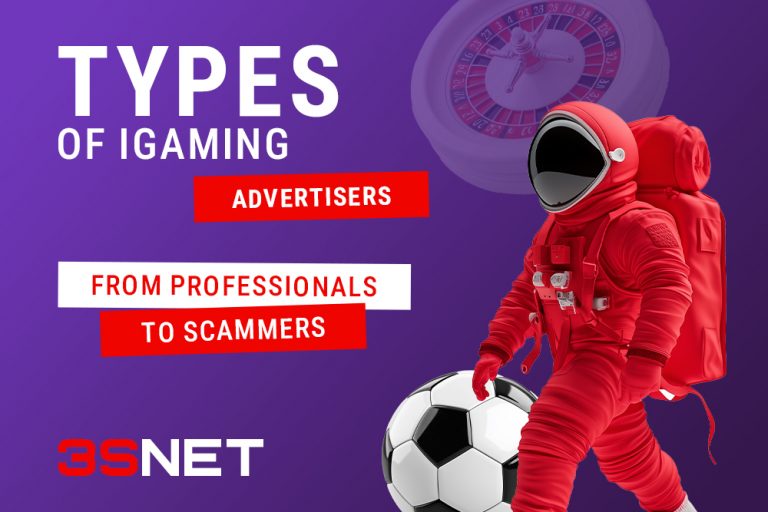
Publication date: 3 July 2025
The iGaming market is flourishing, attracting players of various levels — users, partners, traffic specialists, and advertising platforms. However, as the audience of online casinos and bookmakers expands, the number of unscrupulous advertising practices also increases. On 3S.INFO, we classify advertisers by their level of professionalism and operational models to assist affiliates and partners in navigating the market efficiently.
Advertisers in iGaming: Professionalism Levels
This classification divides iGaming market participants by their level of professionalism and reliability. Let’s analyze how the premium segment, operating legally, differs from short-term and obviously fraudulent schemes in gambling and betting.
Professional Advertisers / Premium Segment
These are large, reputable companies with proper licensing and recognizable brands, such as Bet365, PokerStars, Parimatch, 1xBet, etc.
How to Recognize High-Level Gambling and Betting Advertisers?
- Fully compliant operations with proper licenses and official advertising, passing all compliance stages.
- Using CPA/RevShare models through trusted affiliate networks and direct affiliates.
- Brand Investments, complex marketing strategies: CRM management, branding, sponsorship of events and sports teams.
- Transparency and Compliance: Adherence to KYC (Know Your Customer) and AML (Anti-Money Laundering) regulations. Players undergo verification, and operators emphasize player protection and financial clarity.
- Long-Term Focus: Oriented towards maximizing LTV (Customer Lifetime Value), updating user databases, and offering recurring promotions.
- Active in Infospace: Active participation in conferences, industry forums, and strong communication channels.
Semi-Professional iGaming Advertisers / Mid-Level
These are operators using white label platforms, often licensed in Curacao or similar jurisdictions.
Indicators of Mid-Level iGaming Advertisers:
- Mix of White and Grey Channels: Cloaking, teasers, push notifications, click-under ads (more details on click-under and its mechanics in 3S.INFO series).
- Aggressive CTAs (Calls to Action): Phrases like “Your Win is Already Waiting,” “Gift for Registration,” etc.
- Frequent Changes in Creatives and Landing Pages: Due to frequent bans in ad systems.
- Focus on Tier-2/3 Regions: Latin America, Eastern Europe, Asia.
- Flexible Terms: Allow incentivized traffic and fraud tolerance.
Amateur/Hype Projects / Dilettantes
These are short-lived projects with dubious returns.
- RTP manually manipulated, no game control or auditing.
- Fake Brands: Cloned casinos with slightly altered names.
- Exaggerated Bonuses: Offers like 200%, 500%, or “guaranteed wins.”
- Unrealistic KPIs: Focus solely on First Time Deposits (FTD), disregarding lead quality.
- GEO Misrepresentation: Claim one location but operate from offshore jurisdictions.
Scammers in iGaming: What Could Be Worse?
Fake advertisers disappearing after receiving traffic.
How to Spot a Scammer in Online Casino and Betting Ads?
- Launched on generic white label platforms or scripts.
- No reviews, reputation, or representatives. Domains only 1–2 weeks old.
- Too-Good-to-Be-True Terms: Offers like 70% RevShare, immediate payouts, no holds.
- Refusal to pay, banning partners, abruptly shutting down offers.
Case Study from 3SNET: What happens when an advertiser changes terms mid-campaign without informing partners, then blames poor traffic quality? Find answers in our article How Advertisers Cheat Affiliates: A Real-Life Case and Action Plan.
iGaming Advertisers: Types Based on Business Model
We explored three business models in online gambling: Official Brands, White Label, and RevShare projects. Let’s compare their legality, launch conditions, reliability, and risks for partners and players. Ultimately, we’ll understand the difference between transparent, regulated operators and high-risk fraudulent schemes.
Official Brands in Gambling and Betting Promotion
These are legal operators supervised by strong regulators (UKGC, MGA, GGL, DGOJ).
- Have legal status, offices, investors, and auditors.
- Use certified engines and platforms (Playtech, SBTech, OpenBet).
- Conduct periodic audits, maintain accounting, and pay taxes.
- Higher barriers to entry but stronger player loyalty.
White Label Advertising Projects for Casinos and Bookmakers
Quick Startup on Rental Platforms (SoftSwiss, EveryMatrix, etc.).
- Launch Period: 1–2 months.
- Turnkey Solution: Includes gaming engine, license, payment modules, and games.
- Lower budget, but competition is fierce.
- Main Attraction Method: Affiliate marketing. Success heavily depends on marketing efforts and network trust.
High-Risk Area: RevShare Projects in Gambling and Betting
Often disguised as stable white label offers.
- The project starts as a RevShare scheme, accumulating a lead database.
- Then it suddenly shuts down (change of legal entity, technical failures).
- Within a few weeks, the same offer reappears under a new brand, retaining the same database but skipping payments to former partners.
Working with such advertisers repeatedly poses considerable risks.
The affiliate marketing space evolves dynamically: new technologies, algorithms, and popular markets emerge. Yet, one principle remains constant—transparency and mutual benefit between advertisers and webmasters. Timely payments according to agreed terms are crucial. Read more: How to Reduce the Risks of Working with RevShare?
Why Knowing iGaming Advertiser Types and Models Matters?
Understanding different types of advertisers and their operational models is crucial for minimizing risks. Before launching an offer, it’s essential to:
- Verify licenses, reputation, and presence in industry directories.
- Set up analytics and be prepared to replace sources and domains.
- Avoid tempting offers without legal backing.
Continue reading on 3S.INFO about marketing ethics, reasons for declining advertiser quality, and criteria for responsible iGaming operators in the article Unraveling the Instability of iGaming Advertisers: Steps to Discover a Safe Choice.
Share it with your friends via favorite social media

